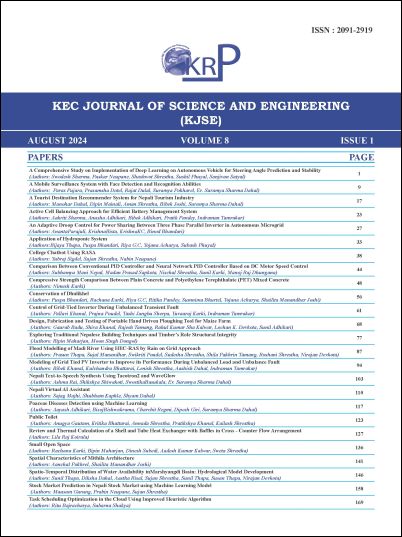College Chatbot Using RASA
DOI:
https://doi.org/10.3126/kjse.v8i1.69263Keywords:
Chatbot, Conversational AI, RASA, Streamlit, API, Rasa NLU, Rasa CoreAbstract
The rapid advancement of Artificial Intelligence, Machine Learning, etc., has brought about significant changes in the technological sphere for decades. One such transformative technology is a Chatbot, a Conversational AI capable of addressing users’ queries. These chatbots are tailored to serve various objectives, one of which is to streamline tasks in education through automation. In line with this, a paper titled “College Chatbot Using RASA” has been written, which can effectively respond to questions based on college and other college-related information. The chatbot has been made accessible via an API utilizing the Streamlit framework. The RASA framework, a key open-source technology, has been harnessed to enable the chatbot. RASA plays a vital role in the chatbot's functionality by combining two main components, Rasa Core and Rasa Natural Language Understanding (NLU). Rasa NLU component is used to deduce intent and extract necessary entities from user input, while Rasa Core generates output by constructing a probabilistic model. The model is evaluated by getting a confusion matrix and prediction confidence distribution. The chatbot, upon testing, showcases the best result of 1 for each accuracy, precision, recall, and F1 score.




